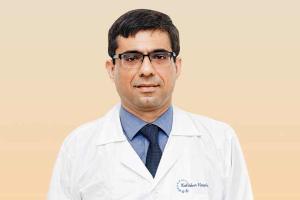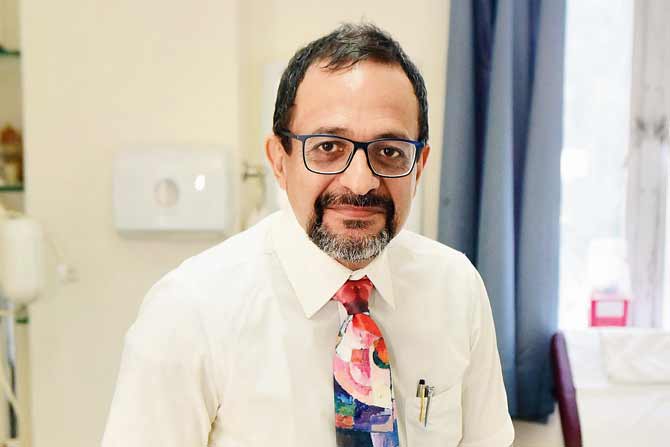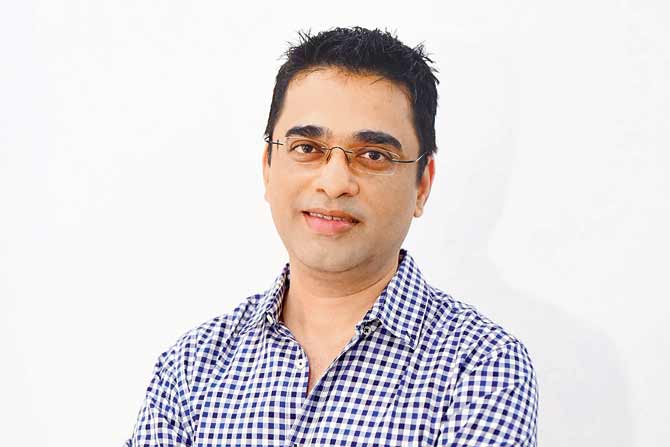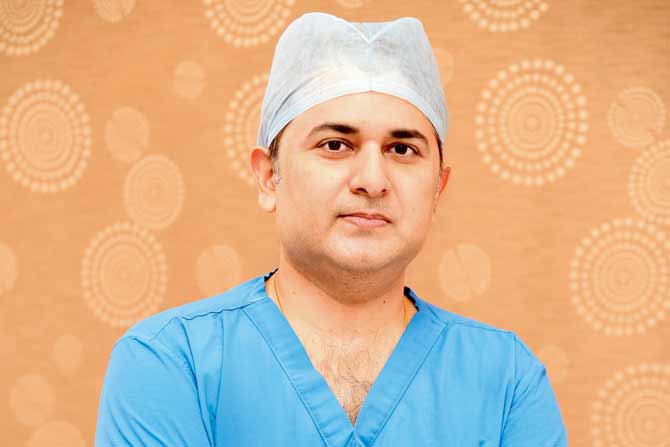They have a discrimination-free, open-door policy. Meet the doctors who have become "allies" for Mumbai's queer

Dr Dheeraj Kapoor
In 2012, when the city got its first Gender Reassignment Clinic at Kolkilaben Dhirubhai Ambani Hospital, Andheri, Dr Dheeraj Kapoor, consulting endocrinologist, was one of the key people involved in setting it up along with Dr Sanjay Pandey, consulting uro-andrologist. Although he has treated over 400 members from the trans community since, Dr Kapoor has never gone to the extent of advertising himself as a queer-friendly doctor. Yet, for many transmen, transwomen and those identifying as intersex, Dr Kapoor has become their go-to health professional. "I think it happened by chance," says Dr Kapoor, squeezing time in between his consultations to speak to us. "In 2010, when I began practice in Mumbai, I happened to have a transgender patient at my clinic. He was happy with the treatment, and later recommended my name to others who wanted to transition," he says. The word gradually spread in the community, and if he would receive one patient a month then, it's two a week now.
ADVERTISEMENT
Acceptance is key
In an ideal world, a queer patient wouldn't need to seek out a queer-friendly doctor, because it's a healthcare professional's responsibility to provide affordable, accessible and non-biased care. But the world is flawed and the burden of finding the right doctor often rests on members of marginalised communities. Which is why trusted health professionals are doubling up as "allies" in their attempts to create safe spaces where queer persons can seek medical treatment free from prejudice and assumption.
Funnily, Dr Kapoor admits he wasn't aware of the term "ally"—a non-LGBTQi person who uses their privilege to support the queer community and promote gender equality —until we brought it up. "The thing is, I've never treated them differently. In fact, some of them don't want to be called trans; they want to be called man or woman. And I respect that." In hindsight, this is what worked.
 Dr Kersi Chavda Pic/ Bipin Kokate
Dr Kersi Chavda Pic/ Bipin Kokate
Dr Kersi Chavda, Mumbai's poster boy of the ally doctor, concurs. Twenty years ago, when he started practice as a psychiatrist, he battled "ridiculous" assumptions among doctors. "Many feared that the gay patient is going to pounce on them. Just like no woman pounces on a male doctor, no gay man is going to do that! So what happens is because there are still a whole bunch of doctors who are extremely judgemental—much less so now—if a queer person comes to you and finds that you are a nice chap, it spreads in their circle." In 2016, Chavda took over as Chairperson of an LGBTQi task force established by the Indian Psychiatric Society (IPS) to announce its official stance on homosexuality, saying that members should 'stop considering homosexuality as an illness'. Over the years, he has worked tirelessly to spread awareness and sensitise the public towards the LGBTQi community through seminars, training for medicos and non-medicos, aimed at de-stigmatisation. "People don't normally come to us because they are gay. They come because they are depressed, confused, and being gay is just incidental," he says. While he also gets cases of people who suspect that their sexual tendencies are leaning towards the same sex, in those cases, he evaluates them, goes through their history and decides on the nature of counselling.

Dr Prasad Dandekar Pic/ Bipin Kokate
According to Dr Prasad Dandekar, head of Department of Radiation Oncology at Sir HN Reliance Foundation Hospital, one of the biggest fears that patients have is, 'how will my doctor react?' "Let's say, a gay man has developed an ulcer over his genitalia. When he goes to the doctor, it's natural to worry if the doctor will treat him badly for being gay, on learning about his sexual history." When he conducts seminars, his take home message is: don't assume that every person who walks into your clinic is heterosexual. "I think one of the questions to avoid is, 'Are you married?' If a middle-aged man enters the clinic and the doctor asks 'what does your wife do?', the man will hesitate to come out because of fear of judgement."
It's not uncommon though, for him to receive calls seeking assistance in areas beyond their specialisation. By now, he has developed a circle of LGBTQi-friendly doctors whom he refers patients to. He attributes it to his initiative, The Health Professionals for Queer Indians (HPQI), an organisation aimed at educating healthcare providers to the needs of India's LGBTQi community that he launched last year. "The other day, a gay man reached out to me. He had fears regarding HIV tests, and that he and his partner wanted to sign up for it but were anxious. So, I referred them to a queer-friendly doctor."
More than medicine
Often, the role of a doctor goes beyond simply providing medical care. As a health professional who provides endocrine treatment to gender-dysphoric and gender-incongruent individuals, Dr Kapoor says the duration of treatment is invariably long-term. "You become a part of their lives. And for this, there has to be a comfort level because you are going to be shepherding this person's treatment before transition and even after transition. It's nearly a life long treatment," he says. Transitioning is often a tumultuous and challenging period, marked by mood variations, change in voice, facial hair, skin, bone size and genitals. "The thing is, you are going to be one of the people playing a pivotal part in helping them 'grow into' their new role in society. So you have an important role at hand."

Dr Parag Telang Pic/ Shadab Khan
To create a safe space for transgenders wanting to undergo specialised surgeries, cosmetic surgeon Dr Parag Telang has launched special OPDs on Tuesdays from 4 pm to 9 pm for the community at his clinic in Andheri West. He's one of the few doctors in the city who is trained to perform facial feminisation surgery, that involves the cosmetic modification of facial characteristics. What makes him sought after is the fact that he's accessible. "We are a society that takes things at 'face value'. And I realised that surgeries like facial feminisation, which I learnt in Belgium, go a long way in helping trans members integrate into society." Till date, he has conducted breast augmentation surgeries for over 1,500 trans women, 250 facial feminisation surgeries 40 vaginal reconstruction surgeries.
For most doctors, the key is acceptance and empathy. "Facing rejection from a doctor is damaging for someone who is already battling self doubt," says Dr Chavda. About his role as an ally, he believes, "he was just lucky". "I was raised in a family that was non-discriminatory and my parents were always vocal. And if everybody was like everybody else, life would be so boring."
Catch up on all the latest Mumbai news, crime news, current affairs, and also a complete guide on Mumbai from food to things to do and events across the city here. Also download the new mid-day Android and iOS apps to get latest updates
 Subscribe today by clicking the link and stay updated with the latest news!" Click here!
Subscribe today by clicking the link and stay updated with the latest news!" Click here!






